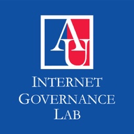Internet Governance Lab Faculty Fellow Professor Jennifer Daskal, Associate Professor of Law at American University's Washington College of Law, co-authored the new report "Low-Hanging Fruit: Evidence-Based Solutions to the Digital Evidence Challenge" published by the Center for Strategic and International Studies (CSIS).
The July 2018 report co-authored with William A. Carter and contributor William Crumpler aims to focus attention on the often neglected challenges and opportunities that law enforcement faces as it seeks to access and use digital evidence in cases.
Their study finds that "the major problem law enforcement faces in obtaining digital evidence is not the encryption of devices, but figuring out which company holds the relevant data and how to get it," as stated in the Washington Post article that features their findings "Encryption? Law enforcement’s biggest obstacle to digital evidence is more basic, study finds."
Despite much of the discussion on law enforcement and digital evidence centering around decoding encrypted devices or data, Professor Daskal and her co-author have found that the biggest obstacle is identifying the service provider that holds the data. Additionally, the authors have found that the second biggest obstacle is actually obtaining the data was the service provider has been identified. These obstacles impact thousands of state and local police departments across the country that investigate violent crimes.
As one solution to this challenge, the researchers advocate setting up a national digital-evidence office which would work with federal, state and local law enforcement, and which could serve as a facilitator with service providers. The formation of a digital-evidence office would come under the Justice Department with Congress' authorization.

